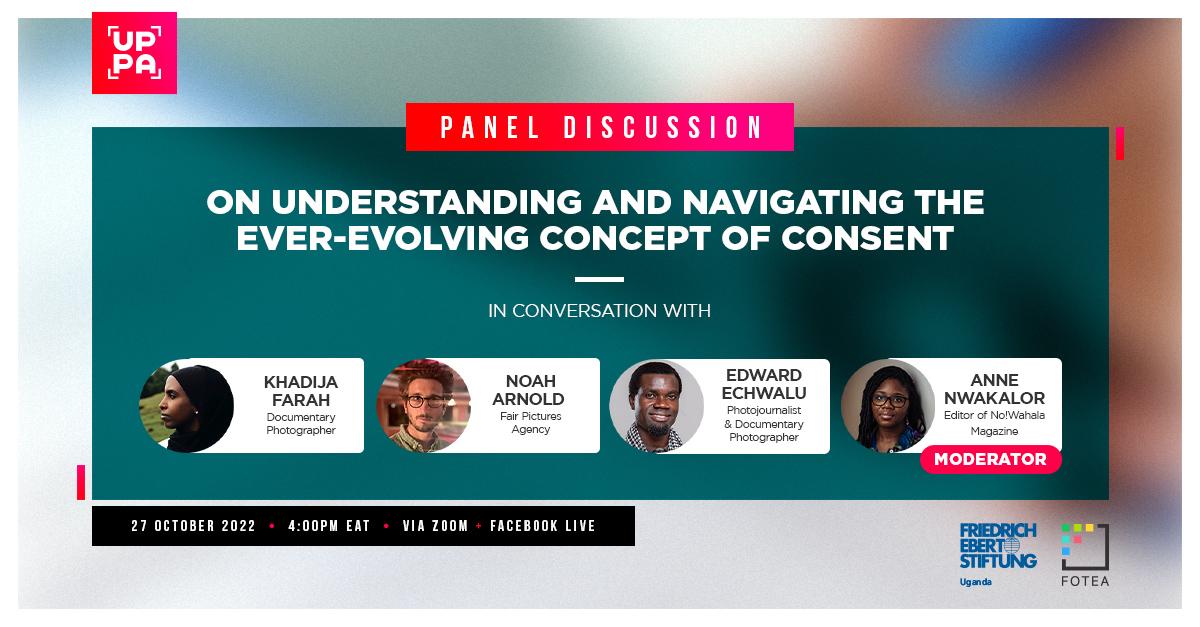Uganda Press Photo Award
A non-profit educational platform and annual competition organised by FOTEA to showcase and nurture photographic talent
On understanding and navigating the ever-evolving concept of consent
”To take a photograph is to participate in another person’s mortality, vulnerability, mutability.” ~ Suzan Sontag
Photographers hold a lot of power behind their lenses and understanding the moral and ethical obligations within their different contexts is paramount to ethical storytelling. In making a picture there is a power imbalance, where the photographer is in charge of the story being told while the person photographed has only two choices: to participate or to refuse, and sometimes even the second option is withheld. So with this panel, we’re looking to explore the nuances of consent. From the basic tenets of informing collaborators on how you’re immortalising them with your representation, to ensuring that you go the extra mile for informed consent and finally how to deal with cases of withdrawn consent. How does consent look in an African context? How can we address the power differential while telling honest stories? The notion of collaborator vs. subject. And how can a reappraisal of the meaning of consent contribute to decolonisation of photography?
This virtual discussion will be moderated by editor of No!Wahala magazine Anne Nwakalor, with photojournalists Khadija Farah and Edward Echwalu as well as Fair Pictures Agency's Noah Arnold joining the panel.
Sign up Here!
Sign up Here!
NOTE
This conversation was inspired by Nana Kofi Acquah recent IG Reels on consent:
https://www.instagram.com/reel/Cg6OPEJIHIL/?hl=en
https://www.instagram.com/reel/Cg4Iiido8Tf/?hl=en
On understanding and navigating the ever-evolving concept of consent
2,890

